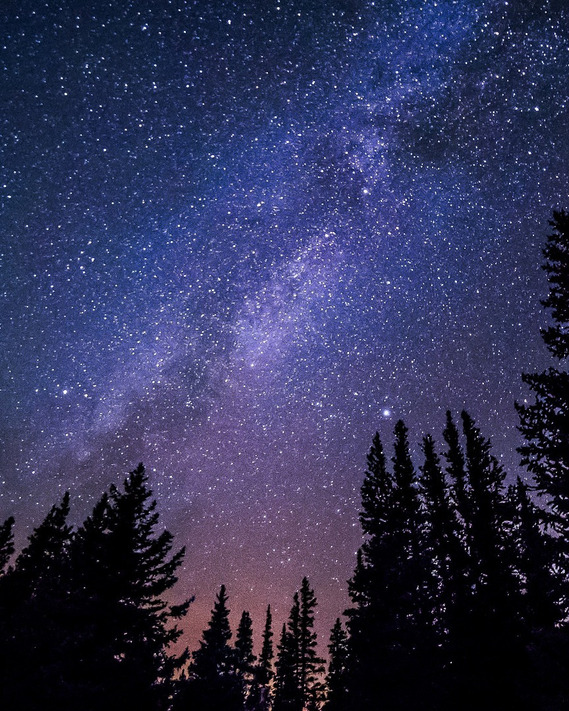Our coming cosmic residence
Lo, I am about to create new heavens
and a new earth
Do you see it, too? God specifically counts out new heavens where a new earth sits. Heavens, plural, in the context of Isaiah’s time (and still today) refers to the cosmos of galaxies and suns we view in our revolving sky. We also know heaven as God’s abode in the divine dimension, the hopeful location of our souls after death. In Isaiah the “heavens” seem specifically to refer to our expansive universe.
I think in the new creation both of these definitions and descriptions of heaven are wedded together. Our universe is brought into heaven. I'm not the only one who says this. Some believe it's a bit nutty to go that far, though.
Nonetheless, God expects us to imagine this merging of the cosmos or universe, whatever that means, into a place where he will also reside.
The new age can be seen in our imagination
http://www.usccb.org/bible/readings/040119.cfm
Isaiah 65:17-21
John 4:43-54
What is a period of time that passes and turns into a totally different existence? Scripture uses the same terminology as archeologists, historians, and philosophers. They are “ages.” The duration of time, from the beginning of time to today, counts out innumerable ages. We get this. We’re trained on this. This is categorization 101. There are prehistoric ages, the historic ages of Stone, Bronze, and Iron. And then, there are the Middle Ages, the Elizabethan age, the Post-Cold War age, and so on.
We spend lots of time organizing the past. Perfectly fine to do that. God’s more forward looking than we are, though, according to scripture anyway. That’s the topic for today. The future.
Behold, I make all things new.
Rev. 21:5
We predict the future based upon what we already know. God knows this. So, in scripture he uses what we know to explain what’s upcoming.
A couple of things to consider in that verse about “I make all things new.” First, there is a now that will pass away, and another to come. Second, the “Lord” is “I” who ends and establishes a new age. And third, the next time, the next age, will be “new.”
Let’s start with the last point, because that’s how quite a few of the new creation statements are recorded in scripture. We are mostly told to think about creation becoming new, rather than wallow in the wacky past.
The Lord, God, controls the flipping of time from one age to another. That’s the assumption we must allow if we are to believe God tells us that things will be new. This is the jump we must make to hear God at any level. We begin with, “OK, God, let’s assume you are there.” And, then we agree to take God “at his Word” and pay attention. That’s the goofy sounding, but incredibly correct position, we believers take on stuff like this — pondering the future with God.
Scripture regards the truth as already revealed, and so we watch for what is actually revealed there. We study it. And so, here’s Isaiah talking about the new heavens and a new earth. The truth is already revealed, but the “new” has yet to appear to us. That, then, is an entirely different study. God’s Word, fortunately, spends an incredible amount of time upon establishing hope in us about the coming creation. Our Isaiah reading for today is just one of those times:
Lo, I am about to create new heavens
and a new earth;
The things of the past shall not be remembered
or come to mind.
Isaiah 65:17
Do you see it, too? God specifically counts out new heavens where a new earth sits. Heavens, plural, in the context of Isaiah’s time (and still today) refers to the cosmos of galaxies and suns we view in our revolving sky. We also know heaven as God’s abode in the divine dimension, the hopeful location of our souls after death. In Isaiah the “heavens” seem specifically to refer to our expansive universe. I think in the new creation both of these definitions and descriptions of heaven are wedded together. Our universe is brought into heaven. I'm not the only one who says this. Some believe it's a bit nutty to go that far, though.
Nonetheless, God expects to imagine this merging of the cosmos or universe into a place where he will reside. We barely see, now, the galaxies beyond our planet, but Isaiah’s hearing from God changes our current description of the heavens and our earth in it into a place where we live with God’s presence visible to us. That presence, without evil or death, becomes a new creation, a restoration in fact, into unspoiled space and time which God first created.
Yes, this takes a great deal of imagination. God, however, urges us to see it. “Lo” translates also as “For behold,” just like the opening of the Revelation verse above. Another translation is “See.” When and how can we imagine such a thing?
We get many clues that can trigger our curiosity into visions in the next few verses. The images God uses to spark our imagination should be rolled about in our minds. To imagine is to “fancy” something, to well up with passion, and to do so with fascination, curiosity, and even preoccupation. God asks us to step forward, rather than back, and allow him to show us prepared peeks into what Jesus specifically calls the coming Kingdom.
Before we tick off the images that God sets before us as definitions of the new creation, — a request to us right away in this announcement in Isaiah — he tells us that the past, where we are now, will be forgotten by everyone. In essence, God wants us to bring our ready and eager imaginations with a clean slate. Imagine ourselves within the new creation without an inkling of the things, the powers, pressures, problems, and perplexed stuff that we experience now. We can barely do so. We have to work at imagining a time and place were these things of our current existence won’t even come to mind.
Instead (of remembering the things of the past),
there shall always be rejoicing and happiness
in what I create;
For I create Jerusalem to be a joy
and its people to be a delight;
I will rejoice in Jerusalem
and exult in my people.
Isaiah 67:18-19
Some might say this is only an historical foreboding by God to the Jews and their promised land. I think that’s myopic, too parochial. God’s “Word” reflects and indeed exhibits Jesus himself. Jesus incarnated as one of us changes parochial limitations. God reaches directly into our time, into every present time.
Yet, the mental state to adopt the future presented by God challenges us beyond logic. God attends to the limitations of our logical parameters. He presents the radical view of the future as something still familiar. These verses resemble what we know now about rejoicing and happiness. They are mere moments to us, but we can grasp the concept of complete joy. In little bits now, knowing it will be cascading later. The bigger difficulty is to imagine that the prickly past, and even the lovely things that have gone by, will no longer be remembered. God even lists those things that will go away from our memory.
Forgetting the past is what the innocent and the brand new, those without a past, must do. In effect, then, going forward in God’s view means we must bring a shiny, clean, innocent approach. We must be like babies who have no past, only the present. Here are those things to imagine:
No longer shall the sound of weeping be heard there,
or the sound of crying;
No longer shall there be in it
an infant who lives but a few days,
or an old man who does not round out his full lifetime;
He dies a mere youth who reaches but a hundred years,
and he who fails of a hundred shall be thought accursed.
They shall live in the houses they build,
and eat the fruit of the vineyards they plant.
Isaiah 65:17:20-21
The new heavens and new earth allows no weeping. We’ve heard about this in many scripture passages. That’s simply overwhelming. We weep too many times! How can this be? The older we get, the more we weep. Inevitable weeping follows every loss, every violence, every sin. Weeping wiped away truly rattles our thought processes, which are tuned into carefully measuring out every attended and unattended sorrow. We can only handle so much, so we must avoid and set aside that which would make us weep constantly. Not having to handle any of sorrow’s whips and drowning drastically changes everything we do. From the trials of invention and creativity that we struggle to do, to the mundane moments of expected mistake and errors, we expect modicum growing into mounds of sorrow. We never know how much more there will be.
In the new heavens and new earth there will be none. Wow. We can almost imagine this. We “want” to imagine it more than “can.”
Also, then, no death. The source of much of our weeping is inevitable death. To hurry with being late or lacking enough time, inevitably, will simply stop. Bucket lists will mean nothing. Everything can be accomplished, and impediments will be surmountable. Cursing will go away. Time extended, giving us as much as we need.
The final two statements for today’s verses are the most familiar. Houses and vineyards that are ours to build and maintain. These mark our new existence in daily living terms. This unparalleled ownership and stewardship for each of us, of both place and produce, removes the constant tendencies we live with now — envy and avarice and gluttony and worry.
We can skip over these verses meant to fill our imaginations, and more probably have done so for much of our lives. God has a reason to repeat this calling to us throughout scripture. He is constantly trying to wake us up. “Lo,” says the Lord. “Behold.”
After surprising us with the idea of a coming new creation, God even shows us how to see into this impossible future. I do want to see it.

